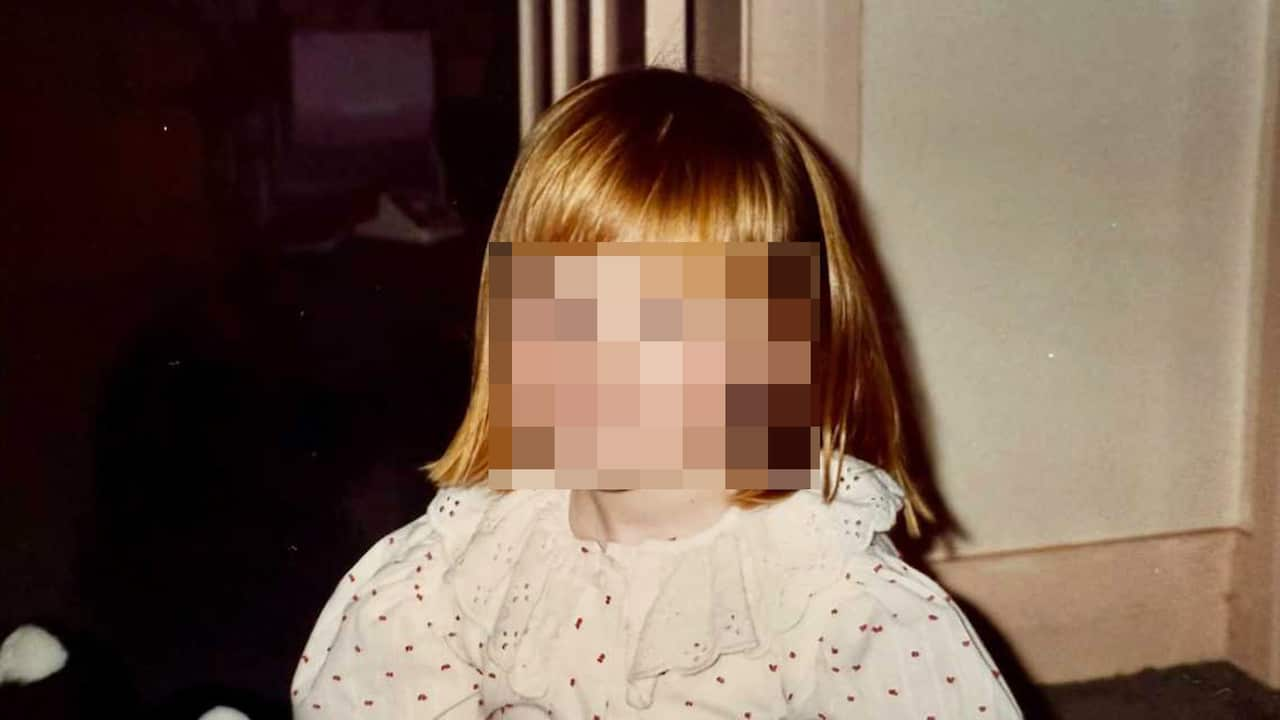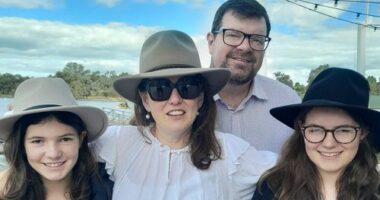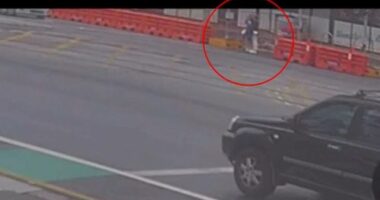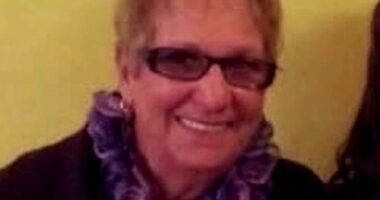Share this @internewscast.com
That’s how Rose was taken by her mother when she was five.

Rose and her mother lived a life on the run after she was abducted, changing their identities. Source: Supplied
They sold the Bluebird, had one last goodbye call with Rose’s grandmother, and assumed new identities.
“It was a lot of isolation, a lot of coercion, manipulation — very cult-like.”
What is parental abduction?
Following her parents’ separation before the abduction, Rose’s mother became her primary caregiver. However, Rose mentioned that her mother always harbored resentment towards her father having visitation rights granted by the Family Court and portrayed him as an incapable parent.

Moving constantly, Rose and her mother often stayed in share houses or properties rented under the names of her mother’s boyfriends. Source: Supplied
“My mum said that when they were living together, he was a real deadbeat dad, a hoarder, and couldn’t hold down a job, and so she was really struggling as a new mother,” Rose said.
Rose’s father made efforts to find her over the years, making several appeals in the media.

Gabriella Pomare is a lawyer specialising in parental abduction cases, working to return children home to Australia. Source: Supplied
Pomare said: “Where a child is abducted interstate, the [Family] Court is able to make recovery orders for the return of the child, often with the assistance of the AFP (Australian Federal Police).”
Although parental abduction is a crime, it can be justified in some situations.
“Acting in self-defence or to protect the child’s safety can also be considered a valid defence.”
Life on the run: Living as a missing person
Rose said she lived in constant terror of being caught by the police.

Rose says her childhood was isolating and “cult-like”. Source: Supplied
“The police are going to come and they’re going to throw me in a children’s home. And my mum told me a lot about how bad children’s homes were and how bad the women’s prison would be for her.”
Rose switched schools at least annually, and due to the frequent relocations, found it exceedingly difficult to form friendships. At times, they would load up their car and embark on establishing a new existence in a different state.
Growing up as a missing person, Rose remembers living in share houses strictly paid for in cash, and a drawer at home filled with wigs and disguises.
“The lady who wouldn’t give her a refund at the dress shop, she rotten-egged her house and collected my poo to throw at her house,” Rose said.
Looking back, Rose said it was clear her mother desperately needed mental health support.
The lady who wouldn’t give her a refund at the dress shop, she rotten-egged her house and collected my poo to throw at her house.
Rose
“I was very afraid of misspeaking at school and getting caught in our big lie and outing her.”
Who goes missing?
Sarah Wayland, a professor of social work and missing persons researcher at CQUniversity, said parental abductions are sometimes viewed differently to other missing persons cases.
While there’s no solid data on why there are more missing persons cases, Wayland said it intersects with trends around mental health, family dysfunction, cost of living and homelessness.

Sarah Wayland spent years providing counselling and support to the families of missing people at the NSW Governmen’t Families and Friends of Missing Persons Service. Source: Supplied
“I think the distress factor probably plays into the increase of numbers of people going missing,” she said.
If someone is missing for more than three months, they’re classified as a long-term missing person — currently, there are more than 2,500 in Australia.
“How do you connect the dots with the parts of life that you might’ve missed out on, and what it might be like to come back again?”
Making up for lost time: Returning to society after going missing
“I just couldn’t keep being a missing person. I really, really tried, and I just couldn’t. I dreamed of having the opportunity to go overseas or drive a car or just have a bank account,” she said.
“He never gave up, he never stopped looking and he never had any other children. And it was his great grief of his life that he didn’t get to know or raise his daughter.”
A different kind of grief
Wayland said it can be difficult for families to make up for all that lost time.
More information about missing persons is available on the National Missing Persons Coordination Centre website: missingpersons.gov.au.












